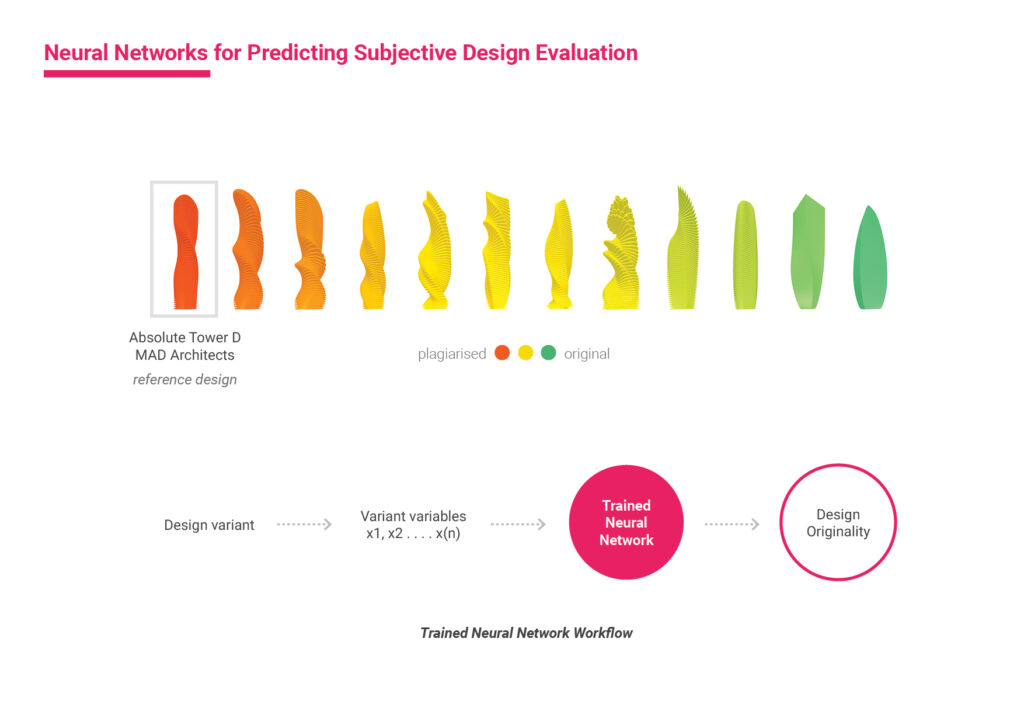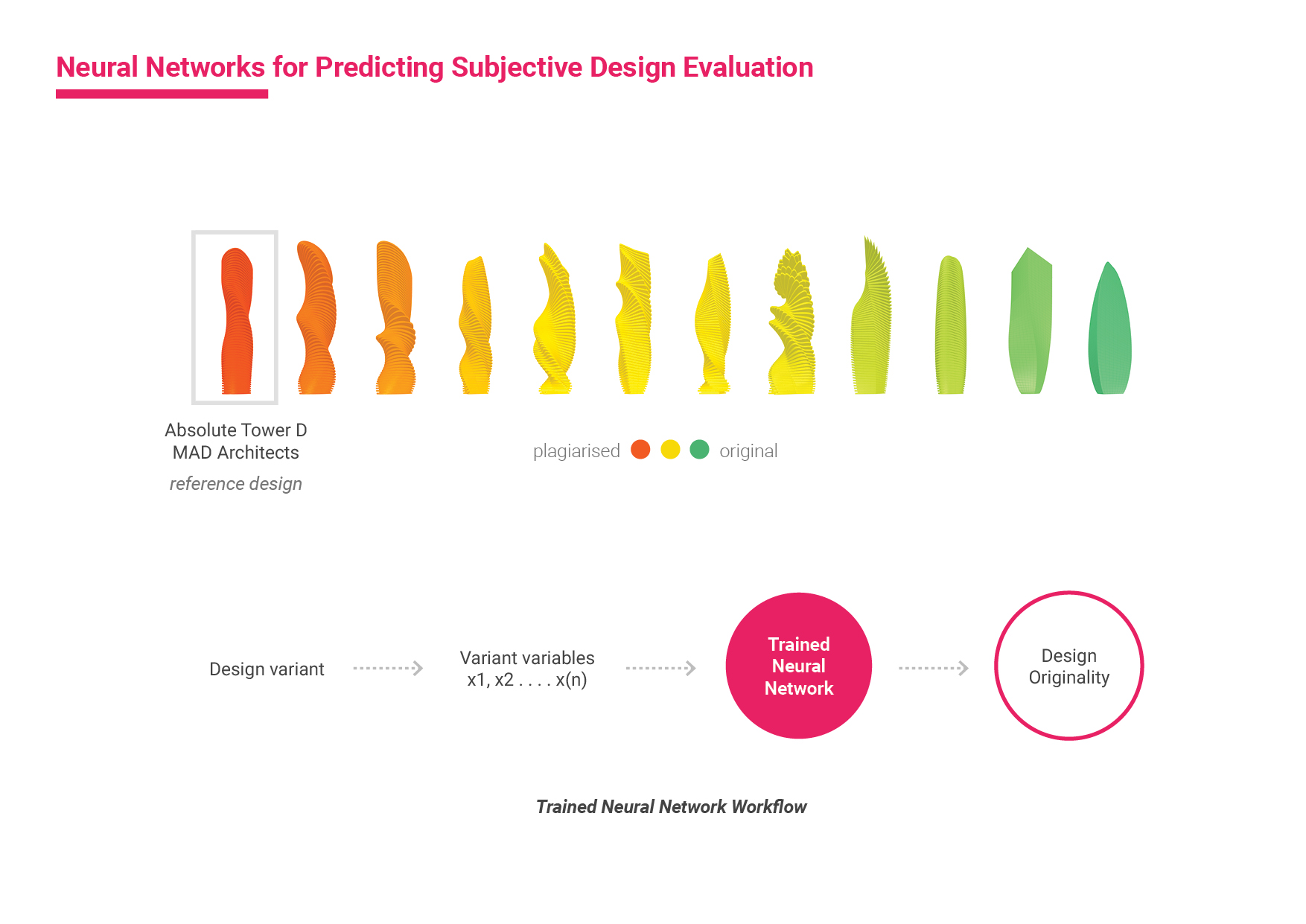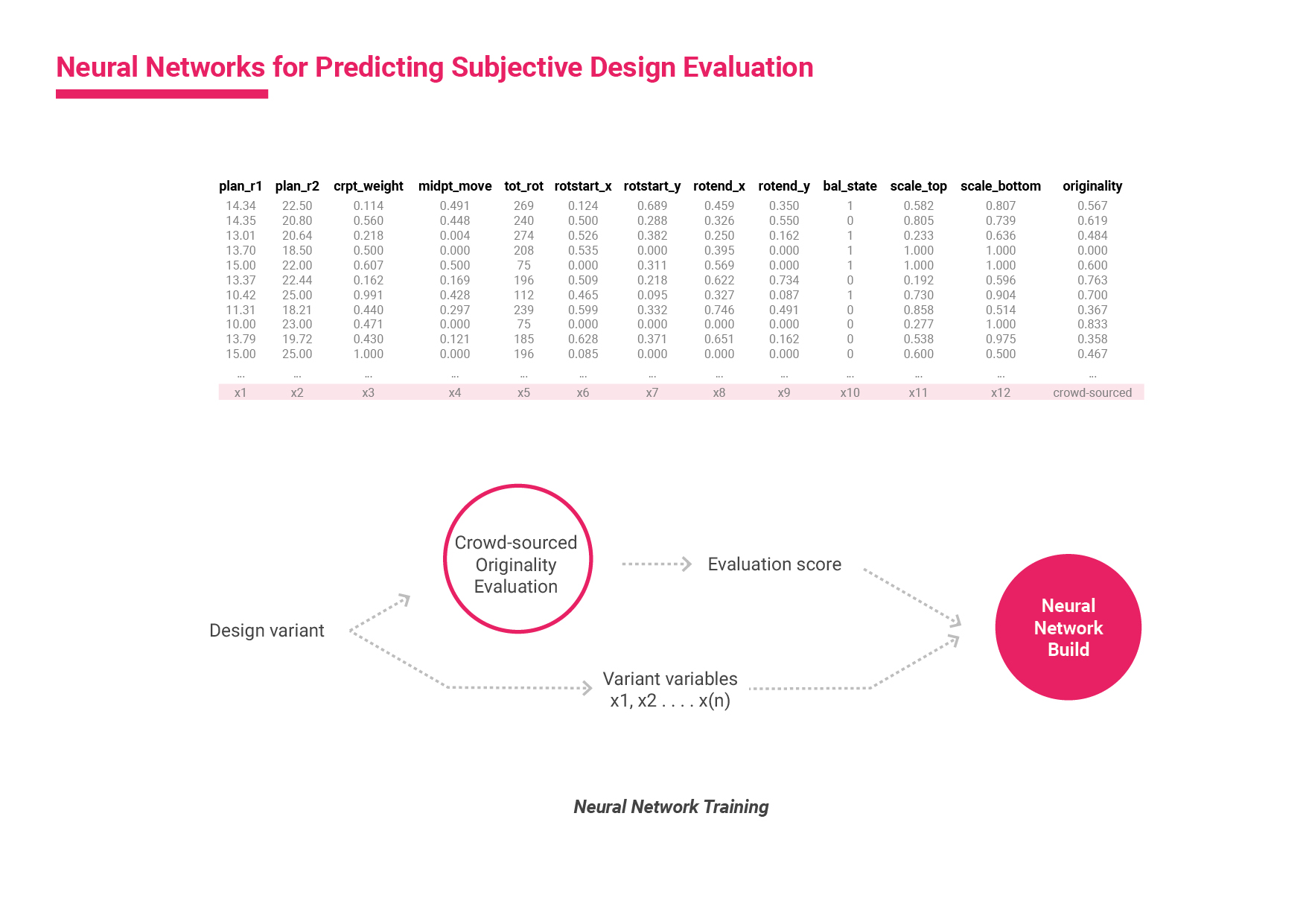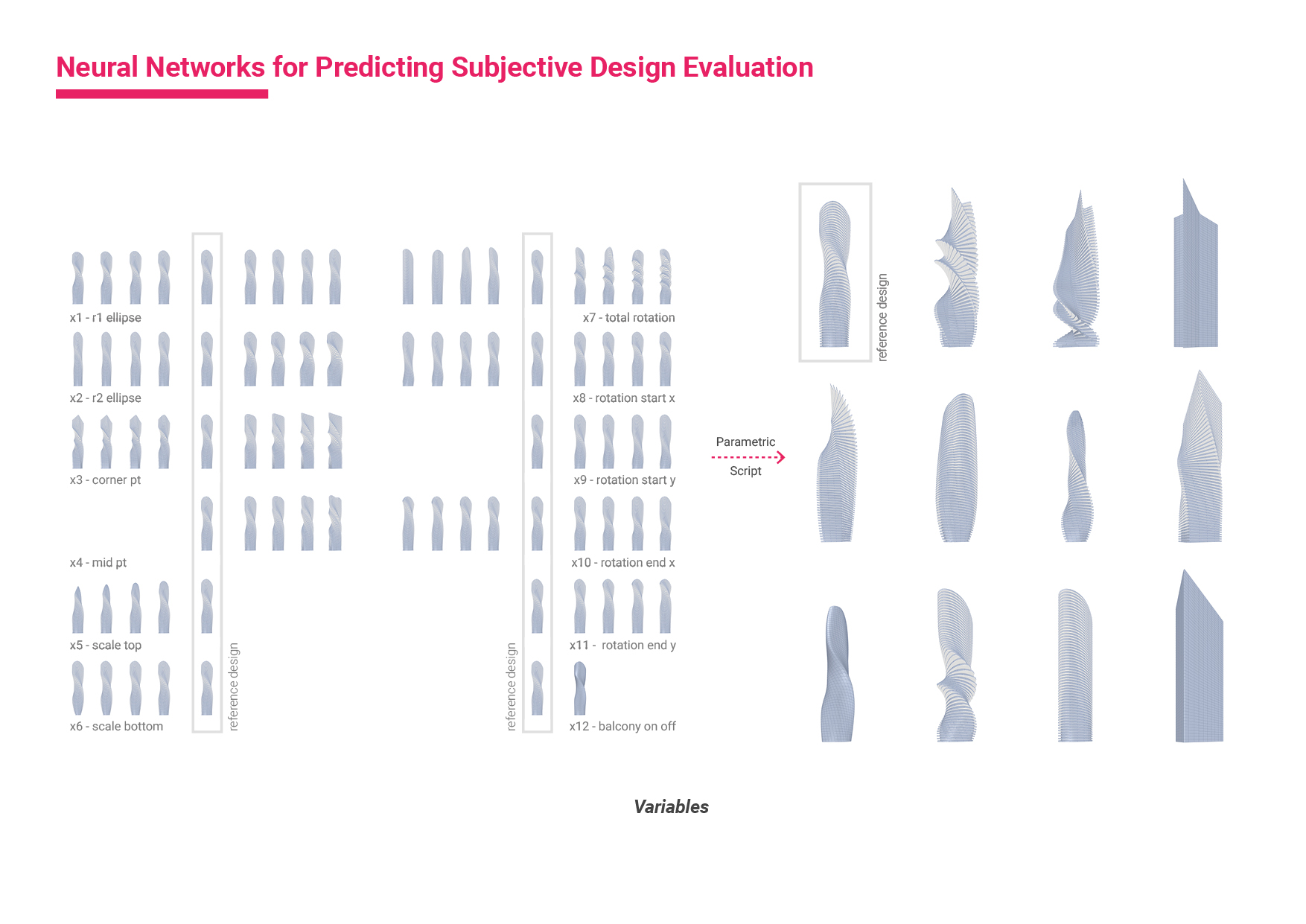
Description:
Required Skills: Beginner level knowledge of Grasshopper
Required Software: Rhino 7
Required Hardware: Laptop
Maximum number of participating students: 100
Artificial intelligence (AI) and machine learning (ML) have been integrated in the workflow and the creative processes of many industries in the recent years. This 5-day workshop is designed to be an introduction (for the uninitiated) to the use of neural networks (ANN) in architecture. The workshop shall address the age-old question of “How to quantify subjective design evaluation?” by training a neural network on crowd-sourced design evaluation data.
Participants will be introduced to the theory of neural network and different ML techniques. Subsequently, as an example of supervised learning, a computational methodology will be used to quantify subjective evaluation of the visual perception of originality of design. A parametric model of Absolute Tower by Mad Architects, defined by twelve variables shall be used to generate variants. Using data-collecting forms, participants will be asked to rate the variants on a scale of ‘plagiarised’ to ‘original’, in comparison to the original design. With the information of the limited set of design options, a neural network will be trained to map the level of originality from the limited set to all possible design options. Finally, the hyperparameters of the trained neural network will be extracted and saved as a Grasshopper component for new variants to be evaluated within Grasshopper.
Use of neural network opens the possibility of statistical assessment of multivariate design options. Additionally, training a neural network on crowd-sourced data marks a departure from top-down evaluative guidelines published by experts to a more inclusive bottom-up evaluation by end users. The methodology can be later used by the participants to assess other subjective criteria, e.g., urban safety perception, design beauty etc. Grasshopper shall be used to iterate design variants, and Google Colab (a free platform that uses Python) shall be used to train the neural network.
Schedule:
timezone: (GMT +5:30) Bombay, Calcutta, Madras, New Delhi| Start time | End time | Description |
|---|---|---|
| 2022-06-27 - 14:00 | 2022-06-27 - 16:00 | Introduction to AI |
| 2022-06-28 - 14:00 | 2022-06-28 - 16:00 | Introduction to Google Colab |
| 2022-06-29 - 14:00 | 2022-06-29 - 16:00 | Subjective evaluation: Data collection |
| 2022-06-30 - 14:00 | 2022-06-30 - 16:00 | ANN Training on Google Colab |
| 2022-07-01 - 14:00 | 2022-07-01 - 16:00 | Trained ANN conversion to Grasshopper component for future use |
Instructors:
 |
Joy Mondal | Joy Mondal leads WEsearch lab which offers design computation consultancy to architecture practices in South-east Asia. His work investigates the use of AI to better understand the spatio-temporal nature of the world. He has released Grasshopper plugins to automate column-beam placement (Eelish) and to generate Piet Mondrian inspired 2D composition and 3D massing (Chingree). His research has been published in various international CAAD conference proceedings including at CAAD futures, SimAUD, SIGRADI and ASCAAD. He has tutored at multiple international workshops at events hosted by University of Sydney, Aalto University, The American University in Cairo, The Chinese University of Hong Kong and University of Southern California. |
Disclaimer:
All workshops will accept 100 applications MAX.




